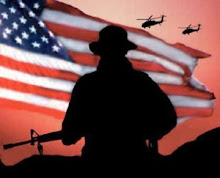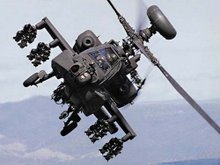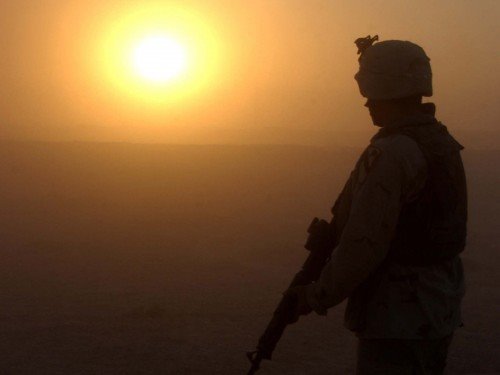CIVILIAN COURT-MARTIAL DEFENSE ATTORNEYS
(Former JAG Lawyers) NEWS:
Another military sex assault post? Yes, I’m afraid so. For those of you who read my posts from time
to time, I know that a vast number of them address allegations of rape and
sexual assault in the military justice system.
That just happens to be the reality of my legal practice, and the state
of the military justice system.
I have
been handling military justice cases on and off active duty since 1995. In that time, no broad topic has been as
prominent in the system as rape and sexual assault. No
category of clients is even close to the number of clients I’ve defended in the
military who were accused of rape or sexual assault. No, that doesn’t mean there’s an epidemic of
actual rape and sexual assault in the military, although there might be an “epidemic”
of such allegations (irrespective of the merits of a large percentage of them).
Within the broad topic of military sexual
assault cases, no subtopic has been as prominent as engaging in sex after
drinking alcohol…and no issue has been as misunderstood and misstated. This issue reaches crescendos in the wake of
scandals. Right after the Air Force
Academy scandal in 2003, “drunk sex” was THE issue in military briefings and
cases. Here, for example, is an article
I wrote back in 2004 after having successfully defended the first litigated
rape court-martial trial at the Air Force Academy post-scandal:
Likewise, after the 2011-2012 Lackland AFB
MTI scandal (military training instructor) scandal, agenda-driven politicians
and advocacy groups once again high jacked the public narrative about the
military justice system (including completely inaccurate statements about the
system and ill-advised systemic changes), and the military has once again
overreacted, with mandatory sexual assault training and briefings; many of
which are still legally inaccurate…even in 2015! There are still those who perpetuate the legally
incorrect message that people can’t consent to sex if they have been drinking
or are drunk. In fact, this message has
included claims that as few as one drink renders people (particularly women)
incapable of consenting to sex and not responsible for their own behavior or decisions.
The drunken hookup comedy movie “Knocked Up”
is all of a sudden a rape movie, if we are to believe politicians, advocacy
groups, and many military briefings.
Absurd! There is a big difference
between the law of consent and preferred social behavior. I’m not advocating that military members should
“get drunk and screw” as Jimmy Buffet sang, but if they do, that’s not the
definition of “rape,” although it may be a poor or regrettable personal
choice.
One of the big problems is that this issue is
one to be avoided if you’re in a position of authority, as any attempt to have
a real conversation about it results in claims of “victim blaming.” Just consider, for example, how the Air Force Chief of Staff, General Mark Welsh, not only had to promise Congress that he would be
tough on the issue of alleged sexual assault in order to be
confirmed as Chief of Staff, but he had to go on a public apology tour for
daring to mention the problem of the “hookup culture” among the young. Just Google “General Mark Welsh and Air Force
and ‘hookup culture’” and you will be amazed by the vitriol. So much for an attempt to address the issues
in a way that could suggest some level of participation or involvement by the
other individual in an alleged drunk sex scenario. You must allege rape and presume guilt in these scenarios or you
are a misogynist, a “victim blamer,” etc. etc.
But then there’s the LAW. And, the Navy-Marine Corps Court of Criminal
Appeals has again reminded us that, according to the law:
drunk ≠ unable to consent
drunk sex ≠ per se rape
The latest appellate opinion appears here:
The only time alcohol intoxication renders a
person unable to consent to sex is when the level of intoxication is SO HIGH
that the person is either unconscious or the person “does not possess the
cognitive ability to appreciate the sex act and does not possess the mental and
physical ability to make and communicate a decision regarding that conduct to
the other person.” In other words, it’s
about the ABILITY to make and communicate a decision at the time of the
sex, it’s NOT about whether that decision was a good one, a regrettable one,
or even a different one than would have been made if the person was sober.
If the person recognizes at the time that she
is having sex and she is able to communicate her decision to engage in the sex, albeit drunkenly,
that is NOT sexual assault. It may be
behavior that should be avoided. It may
be behavior that causes regret, and guilt, and shame, and emotional upheaval…but,
it is NOT rape or sexual assault.
Until that legal concept is understood and disseminated throughout the
military population, there will continue to be court-martial after
court-martial and military conviction rate statistics that are deemed "unacceptable" by those who are determined to change, and destroy, the military
justice system.
For more information about the military
justice system, particularly cases alleging rape and/or sexual assault in
violation of UCMJ Article 120, type “rape” or “sexual assault” into the search
bar above the blog posts. Also, see:
We offer free consultations for a
case you may be involved in. Just call
us.
Thank
you.
By:
Attorney Richard V. Stevens
Civilian criminal defense lawyer and military defense lawyer
Military Defense Law Offices of Richard V. Stevens, P.C.
http://www.militaryadvocate.com
Civilian criminal defense lawyer and military defense lawyer
Military Defense Law Offices of Richard V. Stevens, P.C.
http://www.militaryadvocate.com
Blog
postscript: Attorney Frank J. Spinner and I (attorney Richard V. Stevens) are
former active duty military lawyers (JAG). Our perspectives and advice,
therefore, are based upon our experience as military defense lawyers and as
civilian criminal defense lawyers practicing exclusively in the area of
military law and military justice. This blog addresses issues in military law,
military justice, military discipline, military defense, court-martial
practice, the Uniform Code of Military Justice (UCMJ) and other military and/or
legal topics. Nothing posted in this blog should be substituted for legal
advice in any particular case. If you seek legal advice for a particular case,
please contact The Law Offices of Richard V. Stevens and The Law Office of
Frank J. Spinner for a free consultation. These military defense law offices
are located in Northern Florida (Pensacola, Ft Walton, Destin, Eglin AFB,
Hurlburt Field, Duke Field, Panama City, Tyndall AFB areas) and Colorado
Springs, Colorado (FT Carson, Peterson AFB, Air Force Academy, Schriever AFB,
Cheyenne Mountain Air Force Station, Buckley AFB areas), but our military
defense law practices are worldwide – we travel to wherever our clients are
stationed or serving and need us.

























